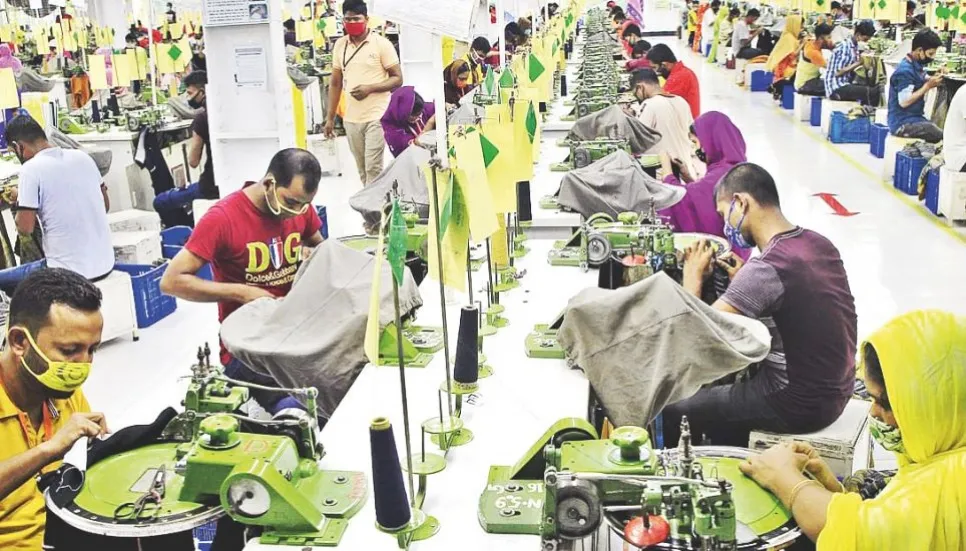
A significant number of readymade garment (RMG) factories continued production on Friday to clear the backlog caused by the ongoing labour unrest.
According to the Industrial Police, around 30 per cent of garment factories in Gazipur district remained open on Friday, with law enforcement agencies, including the Bangladesh Army, deployed to ensure security.
Industry insiders said that factories were open on the weekly holiday to meet shipment deadlines, with workers voluntarily attending work. The arrangement was reached through negotiations with the workers, who will be compensated with time off at a more convenient date.
Bangladesh Garment Manufacturers and Exporters Association (BGMEA) Director Md Mohiuddin Rubel told The Business Post, “Many factories are operating on holidays in compliance with the law. In such cases, workers will either receive overtime pay or an alternative holiday.”
“Due to the ongoing unrest, factories fear they will miss shipment deadlines. This is why they continue production on holidays,” he added.
Meanwhile, local leaders and key factory owners have unanimously decided to open all factories and resume production on Saturday. The decision was made during a meeting in Ashulia on Friday afternoon.
BGMEA Director Mohammad Sohel Sadat announced the decision in a formal notification, informing all relevant parties.
The ousted Awami League (AL) party and the apparently-friendly neighbouring nation, India, are allegedly instigating unrest among workers in Bangladesh's RMG industry, with claims suggesting a plot to destabilise the country’s economic stronghold.
Industry insiders and government officials assert that the unrest is part of a broader conspiracy to create chaos and potentially relocate this vital sector to India. They pointed out that the ongoing protests follow patterns different from those seen over the past decade and a half of labour unrest.
They further claim that the same evil design was applied during the labour unrests of 2005-06. However, this time, the rationale behind the demands appears weaker, with only a small faction provoking disturbances in the Ashulia and Savar industrial zones.
On Wednesday, a group of miscreants set fire to a factory, Big Boss, in Gazipur’s Bhabanipur area, confirmed BGMEA Director Md Mohiuddin Rubel.
In response to the unrest, 116 factories announced closures on Thursday, with 75 implementing the "no work, no pay" policy under Section 13(1) of the Bangladesh Labour Act.
According to the BGMEA, the protests began on August 19 at the Dhaka EPZ gate, where a vested group started demonstrations that later spread to nearby factories. While the initial impact was minimal, the situation has since escalated, the trade body claimed.
Industry insiders, workers and law enforcement sources reported that on August 31, around 10,000 workers from the Nassa Group began vandalising factories. They allegedly forced other factory owners, including those of the Al-Muslim Group, to shut down operations and instigated their workers to join the protests.
Nassa Group workers also vandalised several factories after owners and workers refused to halt production. Since then, these areas have witnessed continued labour unrest and frequent factory closures.
Raising concerns of deliberate attempts to incite disorder, it is worth noting that Nassa Group Chairman Nazrul Islam Mazumder has close ties with former prime minister Sheikh Hasina. Recently, Bangladesh Bank dissolved the EXIM Bank board, where Mazumder also served as chairman, citing financial irregularities.